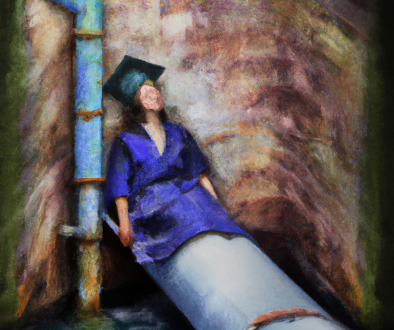Cancel or continue? The conference debate by Mollie Baker
There are a lot of reasons why the academic conferences due to take place this summer should be cancelled or postponed. On a daily basis, we are being told that more people are sick, that more people are dying, that more restrictions might be made, that more money is being lost and that more businesses need to be closed. Although we are being advised that more funding, more tests, more support is coming, these things are yet to come to fruition, meaning our doctors, nurses and key workers are traversing unprecedented and dangerous grounds. While most of us probably hold competing opinions on the value of clapping for the key workers on Thursday nights, I don’t think many of us can hold back our emotions when we think about what they are going through.
It makes sense for our academic projects to be put on pause. We are anxious in ways we never knew were possible, navigating – as we must- the new realities of quarantine, homeschooling, furlough and separation from friends and families. As a vulnerable person, the NHS coronavirus service texts I receive feel more like a threat than friendly advice or protection: “be prepared in case you need to go into hospital, get a single bag ready”, “you can open a window but do not leave your home”. Any chance of being academically “productive” is shot upon knowing that either yourself or your loved ones are facing imminent severe illness.
Postponing conferences therefore releases contributors and organisers from the pressure of creating high-quality content and papers. Postponement recognises that theorising the minutiae of theoretical positions isn’t exactly what people living in fear want to do when they wake up- although if you are one of those people then good for you, it’s nice to have a coping strategy.
Postponing makes sense
…
Right?
Well, No. Not in this case anyway. This conference is needed more than ever. Despite us still dealing with the aftermath of the last economic crisis, another one is looming. So we must ask: How will inequality present itself after the pandemic?
Covid-19 is likely to made being working class in academia even more shit than it already was- I use strong language here because I can’t think of another fucking way to express the severity of this situation. We were already heavily subordinated, pushed into non-“elite” corners of the HE sector or made to feel like prize ponies because we broke the trend. To avoid the sense of inferiority, we were already (unwillingly and unconsciously) hiding our accents, dressing accordingly and following the rules of thinking, reading and writing. We had become accustomed to our middle-class peers speaking down to us, knowing that they see us as either case studies or outliers. We already knew that, in interviews, the person who presents themselves as the most middle-class is the one who will get the job.
Covid-19 exemplifies all of this, for instance:
Who is being made redundant? And, to counter this, who holds the safe, permanent positions?
Who is *not* going to get the promotion?
Who is going to struggle to complete their degree? And, again, who is going to be awarded further funding?
Who is stuck inside without an outdoor space?
Who has been sent back from university to quarantine in cramped family households?
Who is struggling to access necessities right now?
Who faces the most difficulty when it comes to balancing homeschooling with study and/or work?
Who feels guilty because of their privilege right now, and who is thankful for it?
While I recognise the value of other conferences waiting for the return of “normal”, I think that- in this case- normal was a shitshow and that what waits for us is likely to be a shitshow with fireworks. This conference was always supposed to be a space to celebrate the working class academics, and I think that- in light of everything- letting it go would be just another blow. So let’s not wait, let’s do what we can to create spaces of solidarity in academia now- let’s take it online. This is not to ignore the context described at the front end of the blog, but to accommodate for it. Maybe that means that the conference will look at feel different to the usual academic ones, but wasn’t that the point? There is also a case to be made that online is more inclusive. Videos and online Q&As do not require travel, accommodation or a significant break from caring duties. Things can be paused and returned to.
The beauty of taking the conference online is that it become flexible, accessible. Everything academia should have but has never been.

